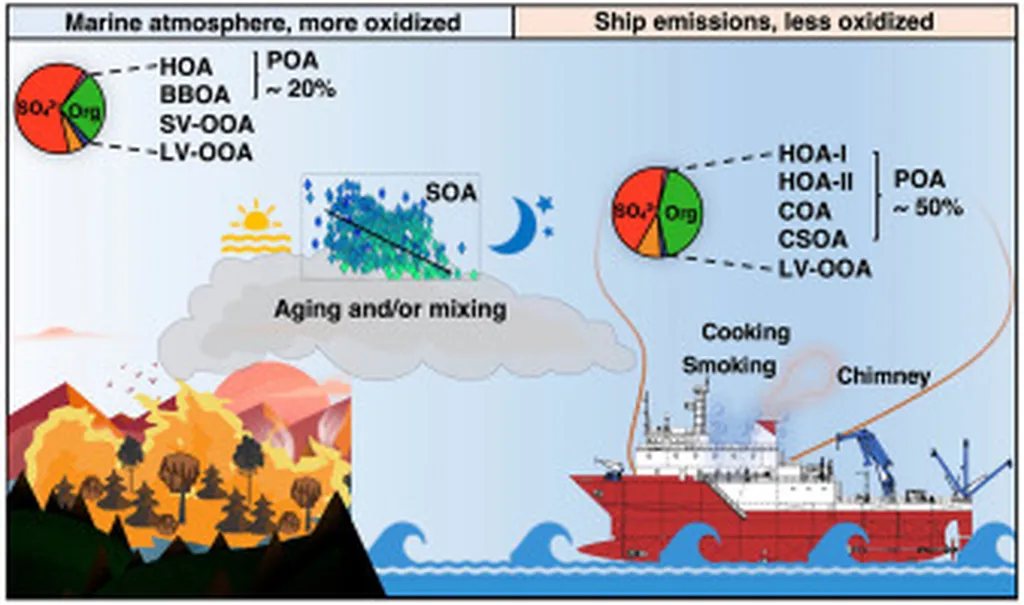In a bid to tackle the challenges of ship emission supervision, a recent study published in the journal ‘Frontiers in Marine Science’ (translated from Chinese) has shed light on the complex dynamics between maritime authorities, shipping companies, and third-party technical service agencies. The research, led by Lin Xue from the School of Innovation, Entrepreneurship and Creation at Minjiang University in Fuzhou, China, employs evolutionary game theory to analyze the strategic interactions among these key players in the maritime sector.
The study highlights that the strategic choices of these three parties are highly correlated and evolve dynamically. Lin Xue explains, “Enhancing the level of rewards and punishments by maritime authorities can help promote the introduction of emission reduction technologies by shipping companies and the standardized behavior of third-party technical service agencies refusing rent-seeking.” This finding underscores the critical role of regulatory mechanisms in driving green shipping initiatives.
One of the key insights from the research is the importance of establishing a reasonable reward and punishment mechanism. According to the study, the sum of rewards and punishments for all parties must be greater than their speculative gains to ensure the supply of “active emission reduction” projects in a stable market environment. This approach not only incentivizes shipping companies to adopt cleaner technologies but also discourages third-party agencies from engaging in rent-seeking behaviors.
The study also emphasizes the need for administrative accountability of maritime authorities. Lin Xue notes, “The administrative accountability of maritime authorities for the dereliction of duty by higher-level governments is of great significance in enhancing the robustness of shipping companies’ proactive emission reduction efforts.” This highlights the importance of a robust regulatory framework that holds all parties accountable for their actions.
For the maritime sector, the research presents both challenges and opportunities. On one hand, it underscores the need for significant investment in monitoring and supervision technologies. On the other hand, it opens up avenues for innovation in emission reduction technologies and the development of long-term incentive mechanisms for green shipping.
The study suggests that local governments should focus on four key areas to promote the monitoring and supervision of ship emissions: strengthening resource investment in marine monitoring and supervision, upgrading monitoring and supervision technology in ship air pollutant emission control areas, establishing a long-term incentive mechanism for the green development of shipping companies, and actively establishing a dynamic performance evaluation mechanism involving multiple stakeholders.
In conclusion, the research by Lin Xue and colleagues provides valuable insights into the complex dynamics of ship emission supervision. By understanding these interactions, maritime professionals can better navigate the challenges and opportunities presented by the shift towards green shipping. The study’s findings, published in ‘Frontiers in Marine Science’, offer a roadmap for policymakers, shipping companies, and technical service agencies to work together towards a more sustainable maritime future.

